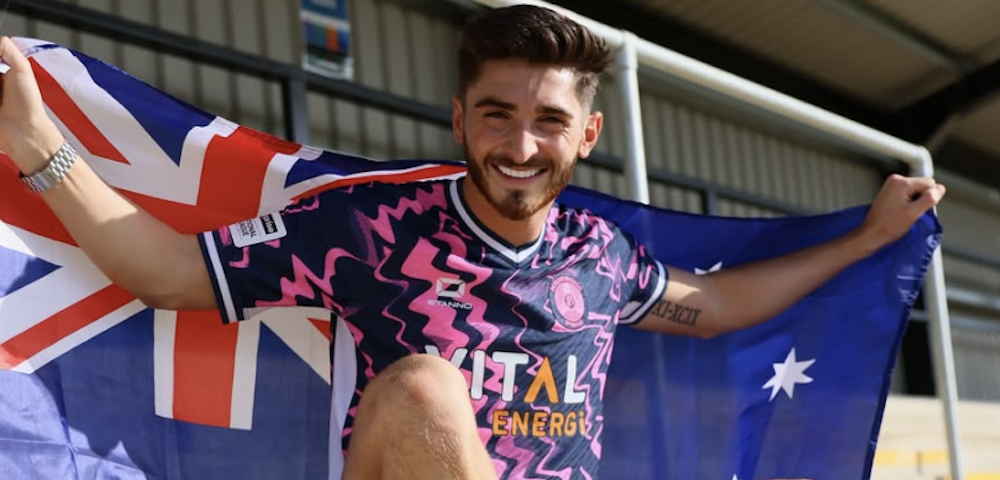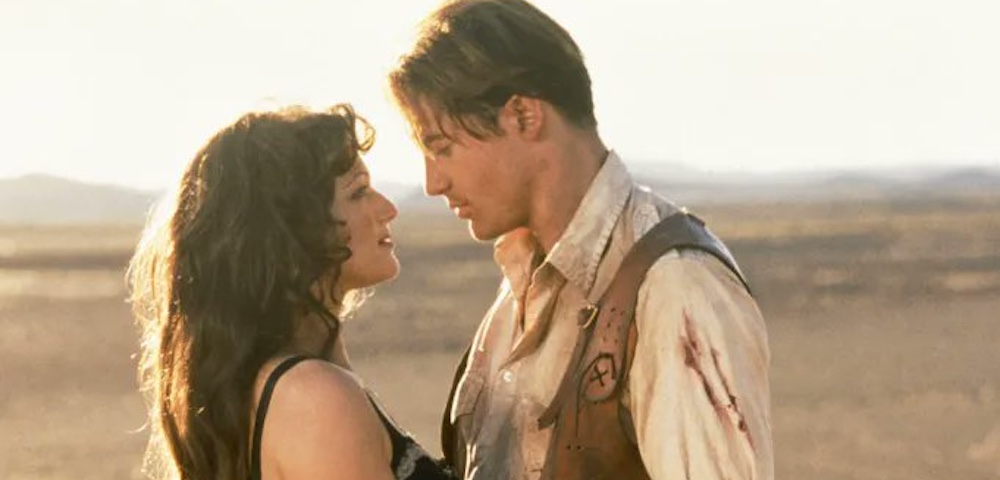
New Campaign To Help Battle Eating Disorders
A new campaign is shining a light on the internalised and cultural stigma and shame that is stopping the LGBTQI community from reaching out for help battling eating disorders.
The Butterfly Foundation reports that only 10% of contacts are LGBTQI, although people in the community are significantly more likely to experience an eating disorder than the general population.
Homosexual men are seven times more likely to report bingeing and nearly 12 times more likely to report purging than heterosexual males.
While two-thirds of people who identify as trans or gender diverse report limiting their eating because of their gender identity.
Juliette Thomson, Psychologist and Manager of Butterfly’s National Helpline, said anyone could experience an eating disorder, but people who do not fit the image of what an eating disorder looks like can have a harder time accessing treatment and care.
“In fact, less than one in four people with eating disorders access professional help,” she said.
“The Helpline is a free, safe and confidential service providing counselling, support groups, information and referrals to health professionals around Australia screened for an understanding of eating disorders.
“All our counsellors are qualified mental health professionals with specialist training in eating disorders and body image.”
 Quinn’s story
Quinn’s story
Quinn identifies as trans masc, non-binary and queer, and at just 12 years old, he knew he was unhappy with his body.
That discomfort and subsequent disordered eating lasted for about 35 years.
“I think the first time I noticed that I felt wrong or that my body was wrong was when I was about 12,” Quinn said.
“I’ve got polycystic ovarian syndrome, so that meant that I put on a bit of weight when I hit puberty, got more hairy and already felt a bit different in my body.
“I didn’t even recognise myself as having an eating disorder. I felt that I was way too big and that I needed to be smaller. I knew that I sometimes overate to the point of vomiting. But, I didn’t understand that I fit into that category and that I could get help for that.”
Quinn is sharing his story as he firmly believes discussing one’s lived experience can encourage others to seek the help they need.
As an academic and a writer, Quinn is used to sharing his journey in written words.
“The reason I said yes to this campaign was that I didn’t come out as trans until I was 40 or 41.
“Before that, I had grown up as a girl and a woman and suffered all the impacts of a culture that requires girls and women to look a certain way.
“I know that sharing each experience helps other people. There are lots of trans and gender diverse people with eating disorders who need support. Unless foundations and organisations explicitly say, ‘you are welcome here’, I think most transgender and gender diverse people are more likely to just self exclude from the service.”
Quinn described his life as a “merry-go-round of either bingeing or starving, dieting or feeling terrible about overeating.”
After moving out of home at 16, he managed what he was battling in private sometimes with the shame overwhelming him.
“There were years of my life where I was completely occupied by how much food I was eating and what kind of food,” Quinn explained. “I think when I was much slimmer, the feeling I got was that I was more masculine.”
Things began to change when Quinn decided to put on a chest binder for the first time.
“Putting on a binder and then putting a t-shirt over it and looking at myself in the mirror and recognising my body properly for the first time, there was some snap of recognition,” he said. “It was from that point, stepping into my own trans body, that meant I was able to let go.”
Quinn began to take steps to gain empowerment through therapy and knowing when to say ‘no’.
“I don’t let doctors tell me what weight I am because I’ve gotten assertive,” he said. “Food now doesn’t take centre stage in my life. I eat when I’m hungry, and I stop when I’m full. That’s my guideline, and that’s what I do, and that’s great.”
Quinn’s message to his younger self is to be kind and to defy the inner critic. His message to others – reach out for help, even just by calling a support line.
Katie’s story
Katie Cameron, who has lived experience of anorexia and bulimia, is sharing her story to encourage people to “choose the vulnerable path” and reach out for help.
As a part of the campaign, she talks about the challenges of managing her eating disorder while being in a same-sex relationship, in particular, because she didn’t want her partner to think that she was comparing body types.
But, it’s been a long battle for Katie.
“When I was younger, when I first experienced anorexia, I was 15, 16 and was forced into help by my mom and candidly, it didn’t work,” she said.
“I had an army of people around me, keeping me physically healthy, and as a result, I did end up recovering, but only to a certain level.
‘Then, within a handful of years, I found myself living with bulimia, which is a lot more clandestine in my experience and easier to cover up. And that was a bit of a… more like a decade long battle before I reached out and did something about that.”
Kate found that being in a same-sex relationship, she was cautious about opening up out of concern her partner would think she was comparing body types.
“I didn’t want her to be overly focused on her own eating or her own body image,” she said.
“I think in heterosexual relationships, you’re less likely to compare your body to your partner’s, but I see that personally as something that can happen in same-sex relationships.
“I’m a person who over the past number of years has largely flown under the radar and been quite happy about that.
“But I’m lucky that I have a partner who is aware of different feelings and behaviours of people around her.”
After having reached out for help – including seeing a counsellor- Katie said having a community of people to trust in has been extremely helpful.
“It’s having enough of your tent pegs down, so you don’t feel like you’re going to spiral out of control,” she said.
“For me, recovery is not a place you arrive at – It’s not like, ‘Ah, I conquered the thing,’ but it’s an ongoing process and a decision every day to choose to stay well, and I do that. Obviously first and foremost for myself, but also for the people around me that care about me. I want healthy relationships. I want a healthy body. I want a healthy love life. I want healthy sexual relationships. I don’t want to lose time to an eating disorder again.”
And Katie’s message to others battling an eating disorder or body image?
“Start by just telling one person you trust,’ she said. “It will get easier. Just tell one person and trust them. Don’t wait as long as I did.”
Help and Support
Anyone needing support with eating disorders or body image issues is encouraged to contact:
- Butterfly National Helpline on 1800 33 4673 (1800 ED HOPE) or support@butterfly.org.au
- Eating Disorders Victoria Helpline on 1300 550 23
- For urgent support call Lifeline 13 11 14









